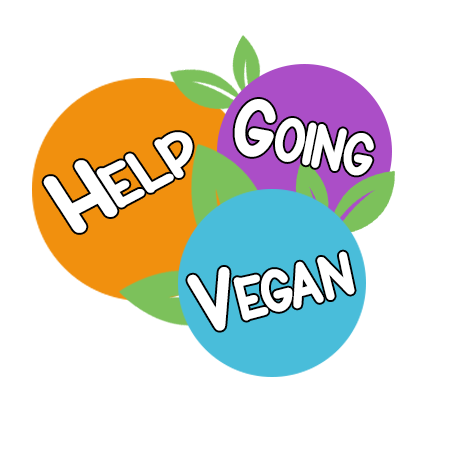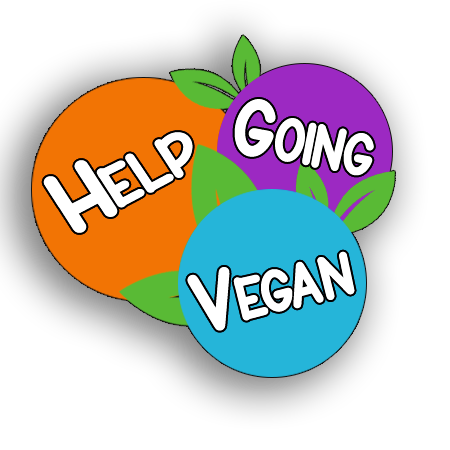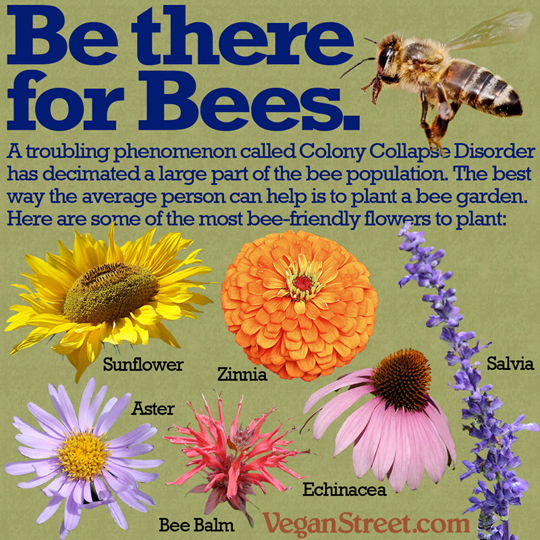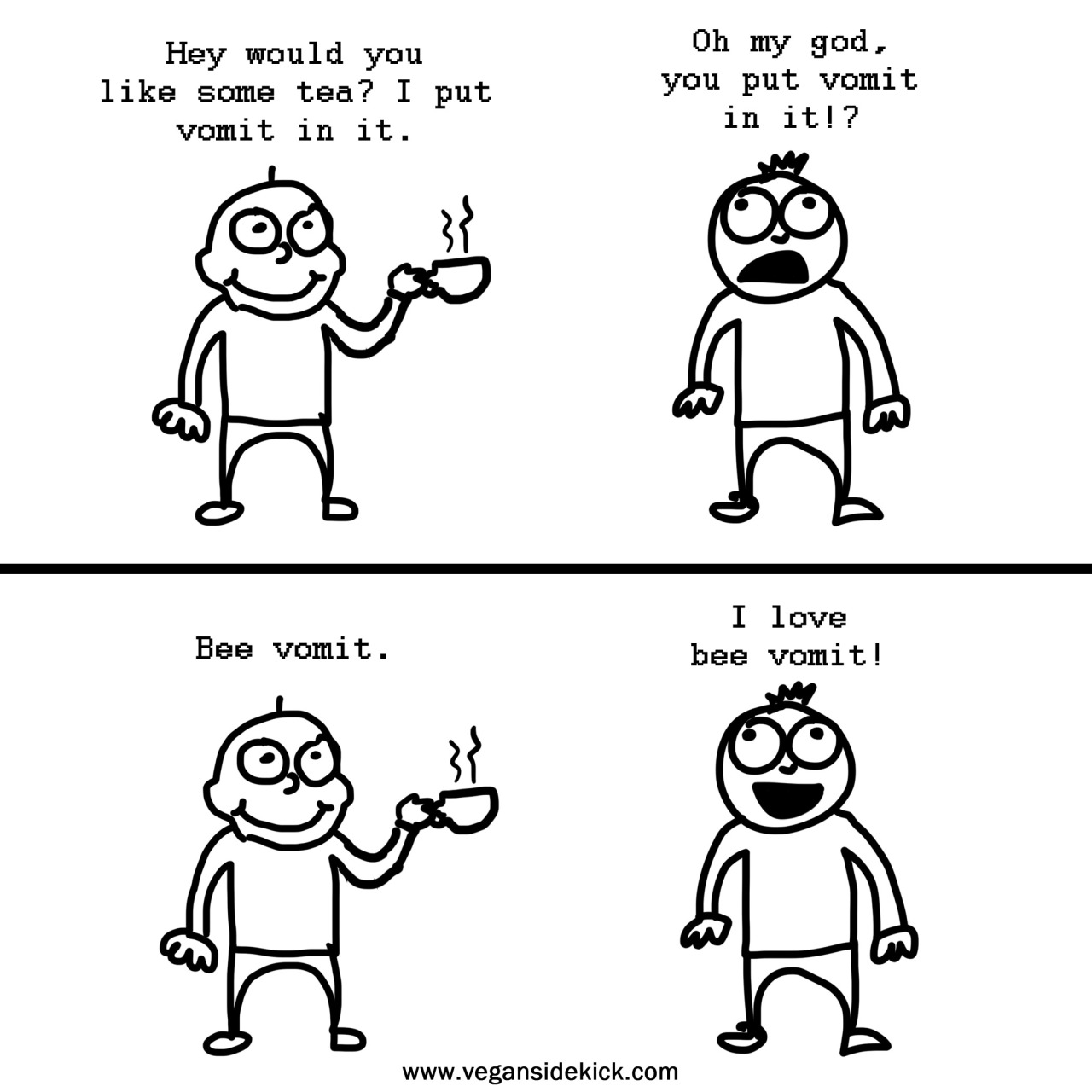Most common questions
you will have yourself and then later will face.
IF you can’t find what you need, please do get
in touch with us and request it to be added!

JOHNNY
Ancestors though…
“We have been eating meat since the dawn of time. And we are doing just as our ancestors before us.”
There are many hypotheses about the food our early ancestors ate, what effect it had on their overall health and the evolutionary impacts of their diets. However, while it is certainly true that they ate other animals, it is also true that they did not always do so, just as it is true that individuals, groups and societies have been thriving on plant-based diets throughout history.
Even if we knew what all of our early ancestors were eating across the Earth during the entirety of our evolutionary history, it would still be illogical to conclude that because some of them ate meat some of the time, we should continue doing so. In fact, a robust body of medical research has concluded that consumption of animal flesh and secretions is harmful to us, and we already know factory farming of animals is destructive to the Earth. Further, this reason for eating meat ignores an important ethical point; namely, that history does not equal justification. Our ancestors did many things we find problematic now. They kept slaves, for instance. So it is both illogical and unethical to conclude that simply because some of our early ancestors ate meat, we should continue to do so now.

KATHY
Canines though…
“We have Canine Teeth for a reason!
To eat meat!”
When humans eat flesh, we don’t actually tear it with our cuspids. Instead, we soften meat with cooking and then pre-tear it with utensils before grinding it down with our flattened molars, which are particularly well-suited for chewing vegetation.
Using dentition as an indicator of diet is a hard case to make. Domestic cats and dogs have similar dental structures, but cats are obligate carnivores and dogs can be vegan. Gorillas are herbivores with long canines. Our own teeth are closer to those of herbivores than carnivores, but we are capable of digesting the flesh and secretions of other species, which means that we can choose to eat plants, animals or both. So it’s clear that a species’ teeth are not a reliable determinant of its dietary requirements.
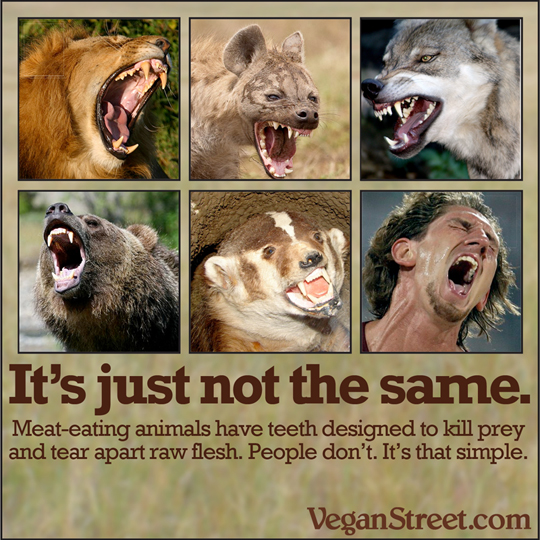

mARY
Personal choice though…
“Eating meat and dairy is MY personal choice. Keep your views to yourself!
You do YOU and I will do ME!”
From an ethical perspective, it is generally agreed that one individual’s right to choice ends at the point where exercising that right does harm to another individual. Therefore, while it might be legal and customary to needlessly kill and eat animals, it is not ethical.
Simply because a thing is condoned by law or society does not make it ethical or moral. Looked at differently, it is logically inconsistent to claim that it is wrong to hurt animals like cats and dogs and also to claim that eating animals like pigs and chickens is a matter of choice, since we do not need to eat them in order to survive.
So it is clear then, that eating meat is only a matter of choice in the most superficial sense because it is both ethically and morally wrong to do so

cALLUM
Protein though…
“I do a lot of working out at the gym and so I need to eat meat for protein to help me bulk up, all vegans are weak.”
Humans need for about 6% of their diet to be comprised of protein, though most doctors recommend 9% just to be sure. Many nuts and vegetables contain enough protein to meet this nutritional requirement, so plant-based diets provide adequate protein for human health.
There is no credible science that equates a plant-based diet with protein deficiency. Moreover, we are not facing a kwashiorkor epidemic among vegans or anyone else in developed and developing nations, but we are facing both diseases and chronic health problems associated with the consumption of excess protein. It is also noteworthy that people have been thriving on a plant-based diet throughout history, and more people are choosing to do so every year without suffering from a protein deficiency. Other factors being equal, vegans have been and continue to be at least as healthy as their peers in this regard.

tRISHA
Top of the food chain though…
“We didn’t get to the top of the food chain by eating grass!”
The terms ‘food chain’ and ‘food web’ refer to a natural ecological system whereby producers in a specific habitat are eaten by consumers in that same habitat. The term ‘circle of life’ has no scientific meaning at all. In neither case do the terms refer to the human consumption of animals, since humans do not exist as consumers in a natural ecological system where cows, pigs, cats, dogs, fish and other food animals are producers.
The only use of the terms ‘food chain’ or ‘circle of life’ in the context of human food choices is to legitimize the slaughter of sentient individuals by calling that slaughter a necessary and natural part of human life, which means the apex predator justification for eating animals is a failure on two fronts. First, the terms themselves either do not apply to the ecological relationship we have with animals or they have no meaning at all. Second, we do not need to eat animals in order to survive, so the underlying moral imperative of ‘might makes right’ is not ethically defensible. By analogy, a bank robber might claim to be at the top of the corporate ladder since he had the ability to take what belonged to others and chose to do so.

NIGEL
Omnivores though…
“We are natrual omnivores and what we are doing is perfectly natrual for us.”
The claim that humans are natural meat-eaters is generally made on the belief that we have evolved the ability to digest meat, eggs and milk. This is true as far as it goes; as omnivores, we’re physiologically capable of thriving with or without animal flesh and secretions. However, this also means that we can thrive on a whole food plant-based diet, which is what humans have also been doing throughout our history and prehistory.
Even if we accept at face value the premise that man is a natural meat-eater, this reasoning depends on the claim that if a thing is natural then it is automatically valid, justified, inevitable, good, or ideal. Eating animals is none of these things.
Further, it should be noted that many humans are lactose intolerant, and many doctors recommend a plant-based diet for optimal health. When you add to this that taking a sentient life is by definition an ethical issue – especially when there is no actual reason to do so – then the argument that eating meat is natural falls apart on both physiological and ethical grounds.

lIZ
Humane meat though…
“Everything I eat is ethical and has been humanely killed or raised free-range!”
It is normal and healthy for people to empathize with the animals they eat, to be concerned about whether or not they are living happy lives and to hope they are slaughtered humanely. However, if it is unethical to harm these animals, then it is more unethical to kill them.
Killing animals for food is far worse than making them suffer.
Of course, it is admirable that people care so deeply about these animals that they take deliberate steps to reduce their suffering (e.g. by purchasing “free-range” eggs or “suffering free” meat).
However, because they choose not to acknowledge the right of those same animals to live out their natural lives, and because slaughtering them is a much greater violation than mistreatment, people who eat ‘humane’ meat are laboring under an irreconcilable contradiction.

bECKI
Plants have feelings though…
“What about the plants that have to DIE for your food? What about their feelings?!”
Vegans draw the line at hurting sentient individuals. Plants lack nerves, let alone a central nervous system, and cannot feel pain or respond to circumstances in any deliberate way (not to be confused with the non-conscious reactions they do have). Unlike animals, plants lack the ability or potential to experience pain or have sentient thoughts, so there isn’t an ethical issue with eating them.
The words ‘live’, ‘living’ and ‘alive’ have completely different meanings when used to describe plants and animals. A live plant is not conscious and cannot feel pain. A live animal is conscious and can feel pain. Therefore, it’s problematic to assert that plants have evolved an as-yet undetectable ability to think and feel but not the ability to do anything with that evolutionary strategy (e.g. running away, etc.). Regardless, each pound of animal flesh requires between four and thirteen pounds of plant matter to produce, depending upon species and conditions. Given that amount of plant death, a belief in the sentience of plants makes a strong pro-vegan argument.

soPHIE
Iron though…
“You don’t get enough Iron from a plant-based diet, its been proven.”
Iron is necessary for the production of hemoglobin, a protein that transfers oxygen from the lungs to the tissues. There are two kinds of iron absorbed by the body; heme and nonheme. Heme iron is not regulated by the body, which means it is always absorbed, while nonheme iron is regulated by the body and absorbed when it is needed. Both are present in meat, but only nonheme iron is present in plants and fortified foods. This is important because a surplus of this nutrient can be as damaging as a deficiency, and only those people who eat meat or take iron supplements are in danger of a surplus.
Conversely, a whole-foods, plant-based diet can safely meet the body’s iron needs.Some prominent health organizations list vegetarians and vegans among other at-risk groups for iron deficiency, which can foster the mistaken belief that plant-based diets do not provide sufficient iron. This is because historically, iron deficiency was a widespread public health concern, and the body’s ready absorption of heme iron helped to address it. However, this conservative position does not address the negative consequences of iron surplus, an escalating problem especially in older men as a result of increased meat consumption.
These negative consequences can include diabetes, heart disease and liver damage, since iron is a pro-oxidant the body cannot eliminate. Conversely, human bodies have evolved to regulate the absorption of nonheme iron so they receive only what they can use, and there are many safe sources of iron in a plant-based diet. For instance, 3oz. of dark chocolate contains more iron than an equal serving of beef liver, and 3oz. of lentils contains more iron than 3oz. of beef, duck or lamb. So it is easy to see that plants can and do provide equally plentiful and safer sources of iron than animals do.

DOUG
Just a diet though…
“Veganism is just a fad and will die out in the future.”
Veganism is a philosophy and way of living which seeks to exclude – as far as is possible and practicable – all forms of animal exploitation and cruelty for any reason, including medicine, food, clothing, entertainment or for any other purpose. In dietary terms it denotes the practice of dispensing with all products derived wholly or partly from animals. In short, veganism is a philosophical position and not a diet.
The philosophy of veganism has a long and varied lineage. Donald Watson defined the term ‘vegan’ as paraphrased above nearly a hundred years ago in conjunction with The Vegan Society. Before that, many notable thinkers and writers such as Dr. William Lambe and Percy Bysshe Shelley objected to eggs and dairy on moral grounds. Buddhism has a great history of compassion for non-human beings that includes many teachings in opposition to the consumption of meat. Pythagoras also objected to the slaughter of animals for his table, giving rise to the term ‘Pythagorean diet’, which was used by many ethical vegetarians until the 1800s, when the term ‘vegetarian’ itself was coined. So it is clear that a plant-based diet is merely one manifestation of an ancient and compassionate philosophy that values the lives of non-human beings and seeks to do them no harm.
The perception of veganism as a diet or passing fad has somehow clung on in the health pages of our newspapers, in cookery columns, and in the miniature portions meted out to vegans in pubs across the land.
There is a continual debate in the media about whether ‘the diet’ is healthy. This is beside the point. There is a stream of misinformation designed to trick people into believing that vegetarianism and veganism are simply not possible. This madness must stop, and it’s extraordinary that it has endured this long.

PETER
What about b12 though…
“You can only get B12 from eating meat.”
While it is true that B12 is not produced by plants, it is also not produced by animals. Rather, B12 is the byproduct of a specific bacterial fermentation that thrives in soil, some fermented plant matter, dead flesh and the guts of animals. Fortunately, this bacteria is easily mass-produced for human consumption now, and many foods are fortified with it, so there is no need to eat animals in order to receive sufficient B12.It is a common misconception that B12 comes from the flesh of animals. However, the truth is far more complex. For instance, ruminant mammals like cows and sheep have stomachs with multiple chambers, and these are excellent growing environments for the bacteria that make B12. Equally important are the grasses these animals eat straight from the soil, which is another primary source of this nutrient. Taken together, the stomachs of ruminant mammals and the soil in the vegetation they eat provide them with the B12 their bodies need. In humans, however, B12 grows in the large intestine, which is located beneath the ileum where it is absorbed. Further, most of us are unwilling to eat unwashed produce, so we do not receive sufficient B12 from the soil. This leaves us with a choice. We can either consume the flesh of dead animals, which contains the B12 the animal has absorbed and is itself another medium for the growth of this bacteria, or we can supplement with B12. Interestingly, factory-farmed animals are regularly fed B12 supplements for various reasons, so it is logical to conclude that we could simply take a B12 supplement as well rather than passing it through the body of a non-human animal first.

MAGGIE
Cant be 100% Vegan though…
“Nobody can be 100% Vegan it’s impossible, so there’s no point in trying.”
Veganism is the philosophical position that exploitation of and cruelty to sentient beings is ethically indefensible and should be avoided whenever it is possible and practicable to do so.
Vegans themselves do not claim this position is absolute nor do they strive for perfection. Rather, the accusation that vegans fail to be vegan because they cannot be perfect is an external one imposed by people who do not understand veganism.
The term ‘vegan’ is defined as “a philosophy and way of living which seeks to exclude — as far as is possible and practicable — all forms of exploitation of, and cruelty to, animals for food, clothing or any other purpose; and by extension, promotes the development and use of animal-free alternatives for the benefit of humans, animals and the environment. In dietary terms it denotes the practice of dispensing with all products derived wholly or partly from animals.”
The meaning of the word ‘vegan’ excludes the possibility of perfection, and vegans themselves understand they cannot hold their philosophical position absolutely. However, this understanding in no way prevents them from making significant, positive changes in the world by choosing not to harm other sentient beings when and where they can.
Clearly, anyone who makes this same decision is 100% perfect in their veganism.

heidi
Bees though…
“What about the BEES killed for your vegan food.”
Bees possess extraordinary intelligence, decision-making ability and even specialized language. They also experience pain. This means that bees are thinking individuals whose needs and wishes are usurped for our benefit when we consume honey. This also means that bees suffer when their honey is taken from them.
In commercial honey operations, queens are purchased after having been artificially inseminated with crushed males. The wings of these queens are ripped off to prevent them from flying away, and while they would normally live to four years old, they are killed at age two to make room for younger queens. Further, commercial hives are often left to die by starvation and exposure or killed as a means of controlling stock. Even in smaller honey operations where bees are treated gently, some are crushed to death when their hives are disturbed. Beekeepers in these environments often replace honey with sugar or corn syrup to maximize profits, but these are not a bee’s natural food, and they are not sufficient to sustain an entire hive through the winter. Ultimately, wild hives create living conditions and food stores ideally suited to sustain themselves, but human intervention results in starvation, suffering and death for bees. So since humans do not need honey to survive, eating it is indeed unethical.

KEITH
Traditions though…
“It’s part of my culture to eat animal products and my religion says it’s fine.”
It is easy to confuse culture and tradition with ethics, but these are all separate things, and it is important to understand them as such. There was a time when the keeping of slaves was culturally acceptable, but even so, it was not ethical. In some parts of the world, female genital mutilation is a traditional non-medical procedure, but it is not an ethical one. These are only two of many reasons why it is problematic to equate cultural and traditional practices with ethical behaviors.
Keep in mind that the purpose of cultures and traditions is not to eat specific foods or engage in specific activities. Rather, it is to strengthen family and community ties. This means that it is possible to participate in these things without compromising an ethic of compassion for all beings. Alternate foods might be prepared, and alternate activities might be engaged that permit you to stand your ground ethically, which might even help to encourage more compassionate cultural practices and traditions among your family and community. If you no longer want to participate in the slaughter of sentient beings, you have the power to make that change. You are your own person, and you are not required to follow cultural practices and traditions that contradict your ethics.

FIONA
Crop deaths though…
“Do you know how many rodents and birds and insects are killed to produce crops for vegan food?”
Crop fields do indeed disrupt the habitats of wild animals, and wild animals are also killed when harvesting plants. However, this point makes the case for a plant-based diet and not against it, since many more plants are required to produce a measure of animal flesh for food (often as high as 12:1) than are required to produce an equal measure of plants for food (which is obviously 1:1). Because of this, a plant-based diet causes less suffering and death than one that includes animals.
It is pertinent to note that the idea of perfect veganism is a non-vegan one. Such demands for perfection are imposed by critics of veganism, often as a precursor to lambasting vegans for not measuring up to an externally-imposed standard. That said, the actual and applied ethics of veganism are focused on causing the least possible harm to the fewest number of others. It is also noteworthy that the accidental deaths caused by growing and harvesting plants for food are ethically distinct from the intentional deaths caused by breeding and slaughtering animals for food. This is not to say that vegans are not responsible for the deaths they cause, but rather to point out that these deaths do not violate the vegan ethics stated above.
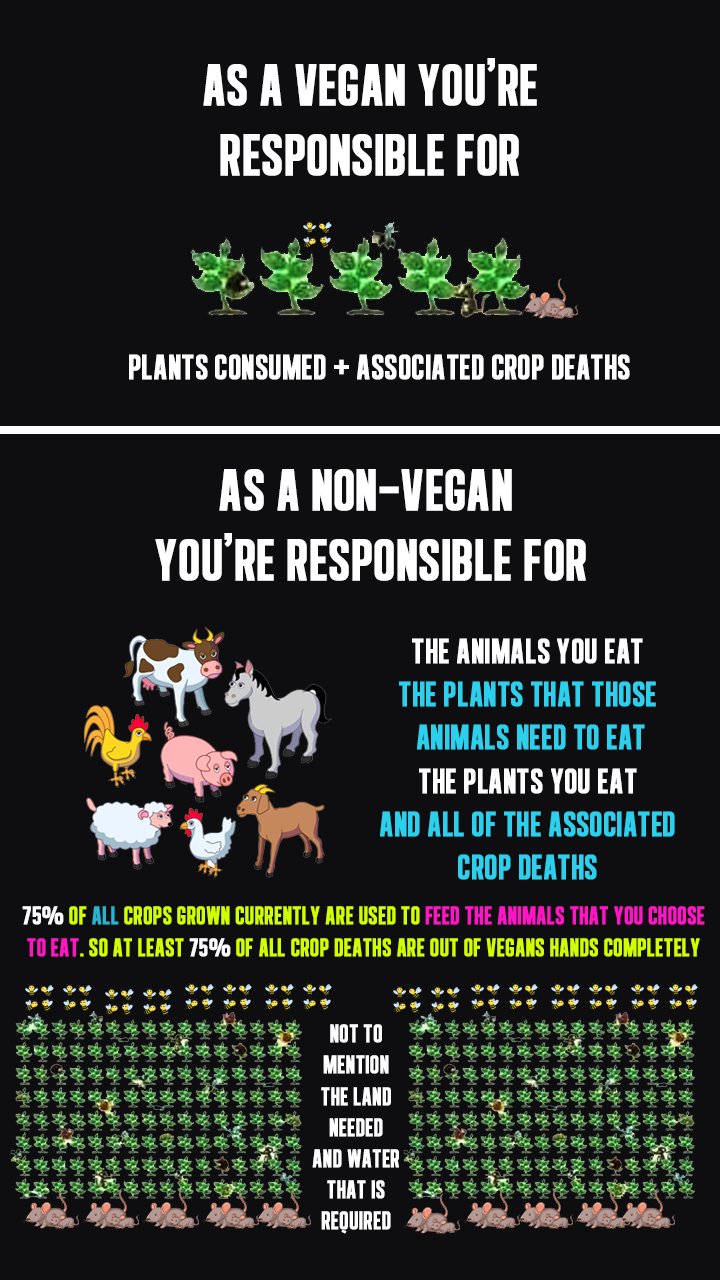

SAM
I’m smarter though…
“Animals are stupid and don’t even know what’s going on – so it’s fine to eat them.”
All animals are intellectually and emotionally sophisticated relative to their own species, and many have thoughts and emotions more complex than those of young human children or the mentally disabled. Even so, it is not logical or equitable to withhold ethical considerations from individuals whom we imagine think or feel differently than we do.
We uphold the basic rights of humans who do not reach certain intellectual and emotional benchmarks, so it is only logical that we should uphold these rights for all sentient beings. Denying them to non-human animals is base speciesism and, therefore, ethically indefensible. Further, it is problematic to assert that intelligence and emotional capacity exist on a linear scale where insects occupy one end and humans occupy the other. For example, bees are experts in the language of dance and communicate all sorts of things with it. Should humans who cannot communicate through interpretive dance be considered less intelligent than bees? Finally, even if an intellectual or emotional benchmark were justification for killing a sentient being, there is no scientific support for the claim that a capacity for intelligence or emotion equals a capacity for suffering. In fact, there is a great deal of scientific support for just the opposite; that because non-human animals do not possess the ability to contextualize their suffering as humans do, that suffering is much greater..

BEN
Here for us though…
“I DO love animals, I just think some were only bred into existence for us to consume and thats their purpose. “
In order to eat meat, an animal lover must be comfortable with the sexual violation of cows, pigs, sheep, goats and other beings via artificial insemination. In order to drink milk, an animal lover must be comfortable with the separation of a mother cow from her calf and with the raising of that calf in a veal crate for the few months it is permitted to live. In order to eat eggs, an animal lover must be comfortable with the crushing and suffocation of billions of male chicks per year, since males are not useful to the egg industry. None of these things are acts of love.
Just as it is not possible to oppress people and still claim to be humanists, we cannot harm animals and still claim to be animal lovers. Love is not expressed for animals by violating and killing them, nor is it expressed by paying someone else to do so on our behalf. At worst, such behavior is an act of hate and at best an act of apathy for the plight of the victims.
Love requires that we support and protect those we love, and in the case of animals, it requires that we do not commodify their lives. Rather, we must treat them with dignity in ways that align with their needs and wishes rather than our own selfish desires. Therefore, if we do love animals, then going and staying vegan does a great deal to express that love.

Belinda
Animals will overpopulate though…
“If we stopped killing animals, they would soon overpopulate and take over the world, consuming everything.”
Firstly, the argument that animals would overpopulate the planet if we stopped eating them is utterly ridiculous and flies in the fact of common sense. Even the most optimistic vegans do not expect the world to go vegan overnight, what we would hope to see is a gradual process where the demand for animal products is lowered, and thus so is the supply. If the Coca-Cola company slowly lost half of its sales over time, it would not continue to make and attempt to distribute the same number of bottles, as this would make no financial sense. Similarly, if the global demand for animal products is reduced over time, then there will be less supply, so less animals will be born and slaughtered. Farmers will not simply keep breeding the same number of animals with no one to purchase the products made out of their bodies. To suggest otherwise is completely illogical.
Arguments like this one are little more than attempts to use reason to justify what is an ultimately irrational decision. No one eats animals because they are worried they will overpopulate or go extinct if they don’t; we eat them because they taste good. This argument is particularly insidious, since not only does it seek to justify the mass exploitation and slaughter of billions of animals, but in the same breath, it tries to convince us that doing so is actually in their best interests.
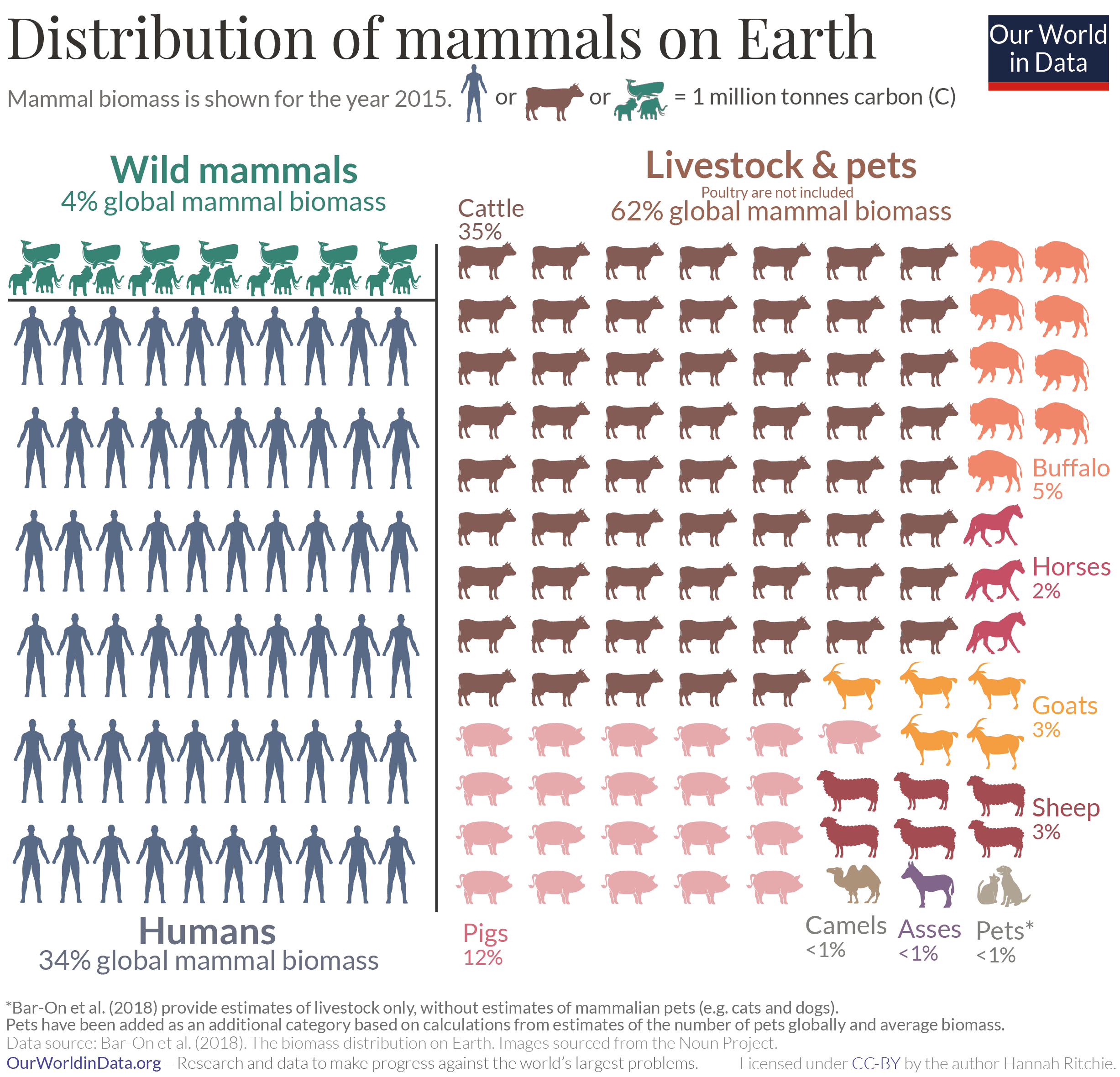
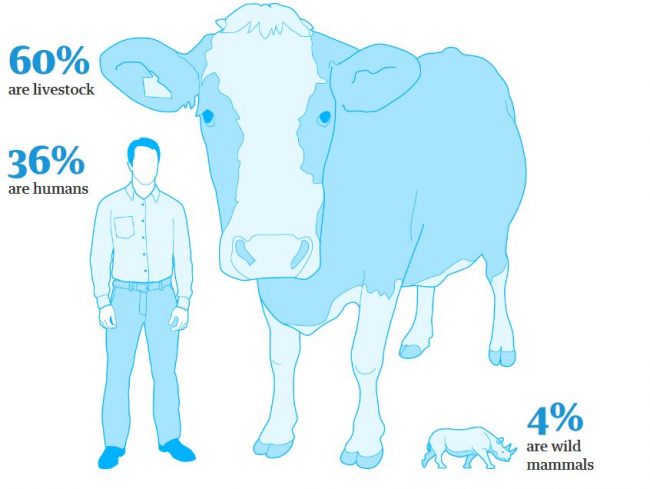

hans
We have bigger problems though…
“Being Vegan is a luxury, the world has some real problems to think about, like war and famine and poverty.”
This is known as a fallacy of relative privation, i.e. an appeal to other problems. It is fallacious in several ways: a.) the person saying it likely isn’t doing anything (or is completely incapable of doing anything) about these ‘other issues’ they mention.
b.) them eating animal products is doing nothing to actually help those other issues.
c.) none of these other issues are preventing them from going vegan, and d.) being vegan does not take more time than being non-vegan, so they can still be vegan and focus on these ‘other issues’ they allegedly care so much about anyway.
Most people don’t even realise that animal agriculture is actually the most destructive entity on the planet. In other words, without veganism, none of these ‘other issues’ would even have a planet to exist on. The ongoing holocaust of animals and its resulting destruction of our planet is, quite simply, the biggest issue of our time.
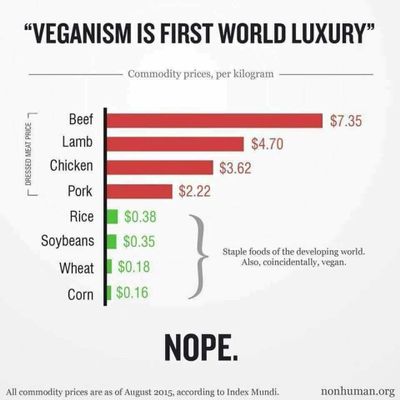
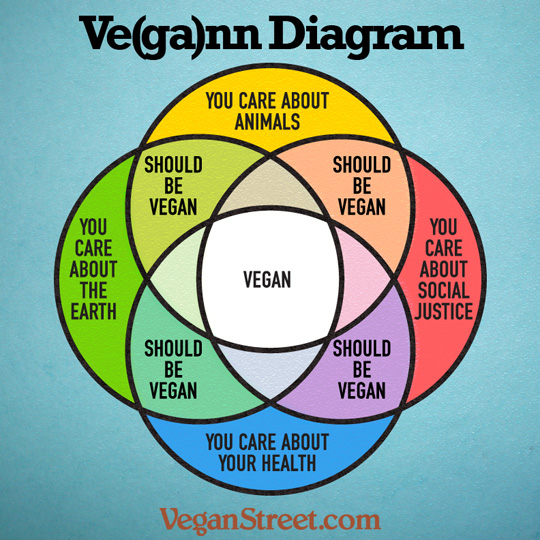

sanjay
They chop down rainforests for soy though…
“Do you how many acres of rainforest that they chop down to grow Soy to make all your vegan food! You are destroying the planet!”
– RAINFOREST –
Animal agriculture is responsible for up to 91% of Amazon destruction.
1-2 acres of rainforest are cleared every second.
The leading causes of rainforest destruction are livestock and feedcrops.
Up to 137 plant, animal and insect species are lost every day due to rainforest destruction.
136 million rainforest acres cleared for animal agriculture.
There are inherent issues with all crops, but even the most resource intensive plant pales in comparison to the environmental destruction caused by meat, dairy and eggs. Criticising vegans on the basis that they consume these things, as someone consuming foods far more destructive and far more resource intensive, is hypocritical at best. Those concerned about the damage caused by soy production should be engaged in meaningful activism to boycott producers or pressure governments to change this system, rather than using this serious issue as little more than an excuse to attack vegans.

ryan
Wont change anything though.. .
“Going vegan wont make any difference in the grand scheme of things.”
It is true that large-scale societal changes rarely happen as a result of one person’s efforts. Rather, these changes happen when a number of people begin to live in alignment with their shared values. In the case of vegans, more people are beginning to live compassionate lives, and each of them is contributing to a more compassionate world. In this way, the animal rights movement is no different from those of women’s suffrage and racial equality, which were both comprised of many individuals who held in common values of compassion, peace and social justice.On a smaller scale, however, it is important to keep in mind that no matter what another person does, you are accountable to yourself. This means that even though one person alone cannot create the world veganism envisions, you need to be able to look at yourself in the mirror every morning. To that end, it might be helpful to note that each vegan saves roughly 400 animals per year, reduces more greenhouse emissions than non-vegans and uses a fraction of the fresh water resources. Moreover, each vegan chooses not to participate in the market for animal suffering, which makes that market just a little bit smaller and the lives of animals just a little bit better. So while each vegan cannot save the whole world alone, individual vegans are saving a small piece of it, and together those small pieces add up to something great.

cindy
Survival though…
“We need animal products to survive, we would all get very unwell and die without them.”
This is a complete lie, and anyone who uses this argument, deep down, knows it. Vegans are living proof that we do not eat animal products for survival purposes. People eat meat, cheese, milk, eggs, and fish because they enjoy the taste. Mars Bars, KFC, Ben & Jerry’s cookie dough ice cream, maple-glazed bacon, donuts, and cheesy puffs are not survival foods and never have been. We can survive and thrive without all these foods (all of which, by the way, there are vegan versions of), and thus we are morally obliged to do so.
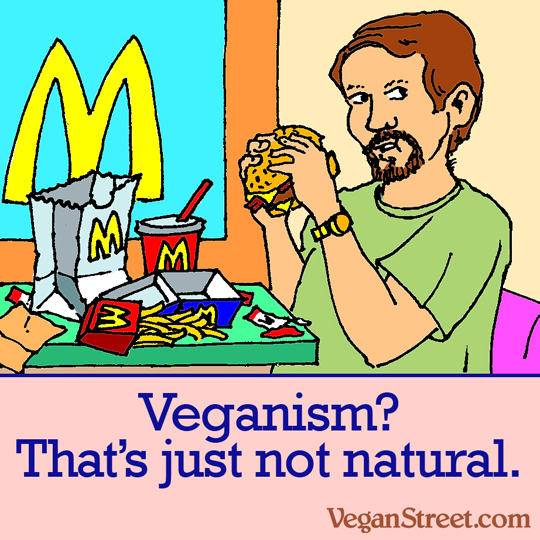

Marcus
Veganism is a cult though…
“Veganism is nothing more than a religion or a cult.”
It is no more a ‘religion’ to abstain from harming turkeys and pigs than it is a religion to abstain from harming cats and dogs. Veganism, simply, is a moral obligation.
There is no “leader” and the only goals are peace, justice and respect! In a perfect world, there’d be no such thing as “veganism” it would just be normality.
With regards to it being similar to a religion, consider this: religion is getting people to believe in things they can’t see. Veganism is getting people to see things they don’t want to believe.
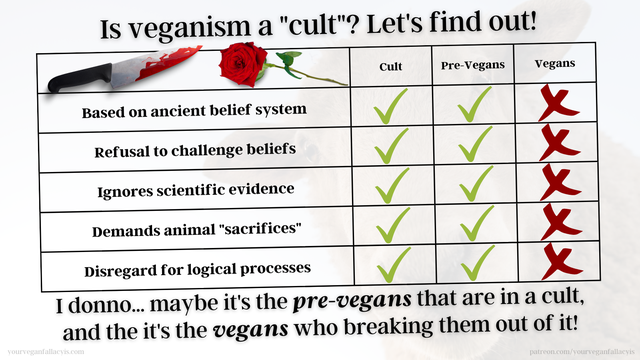

robert
Morality is subjective though…
“I don’t think that it’ is exploitation, in my opinion morality is subjective and i decide its justified.”
To the perpetrator, morality is subjective. To the victim, however, it never is. Morality is only ever subjective when the person saying that phrase isn’t the victim. I’m yet to see one person who uses this excuse actually abide by its principles when it comes to them. What do I mean by this? Simple: anyone who harms others and justifies it by saying “morality is subjective” should write into their country’s law courts and tell them that, should anyone ever harm them (e.g. rape or murder them), the person responsible should not be punished, because hey, morality is subjective, and who would we be to force our beliefs on the person who has raped/murdered them, right?
So just like the food chain and the circle of life, the people who use these phrases always exempt themselves from the very rules of it while expecting animals to be victim to it.

heidi
Don’t have time though…
“I simply don’t have the time to be vegan, I work two jobs and have children to look after.”
If you’ve got time to buy animal products, you’ve got time to buy fruits, vegetables, nuts, beans, lentils, seeds, and grains. Being vegan is no more time-consuming than being a non-vegan, so this is a completely redundant excuse. Indeed, often the foods that take longest to cook are animal products.
Put it this way: it ain’t the nut roast that’s in the oven for 8 hours on Christmas Day.
Add to that routine visits to hospitals and pharmacies that are part and parcel for many people who eat animal products due to their aggravation of our most common diseases, and you’ll find that eating animal products turns out to be one of the most time-consuming endeavours you can undertake.

steph
Buy local though…
“I only buy my animal products from local farms and suppliers, so I know where they all are sourced.”
This phrase is absolutely meaningless. People can live anywhere. They might live next to the factory farm from hell; they might live 3 miles from a farm where animals are tortured for fun; and so on. What does it even mean?
It makes no difference to the victims where you buy from. And the distance makes it no less of a crime. If I kill my neighbour’s dog, is that less of a crime than if I kill someone’s dog in the Democratic Republic of Congo? Of course not.
All farmed animals meet the same fate, regardless of whatever cute little term it is that the marketers put on the label.
In all farms, regardless of how the lives of animals are before slaughter, animals die at a fraction of their lifespan. Farmed animals get killed as soon as their purpose is served, or as soon as they reach a profitable size. The definition of grass-fed, organic and free-range animals is very loose and can vary wildly.
It doesn’t necessarily mean that the animals have any quality of life, it just means the farm has to meet some arbitrary requirements to earn that title.
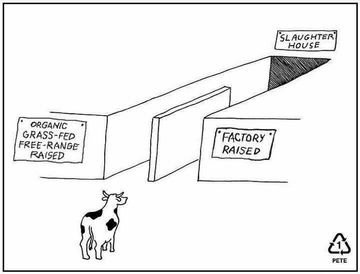

Nick
Human instinct though…
“It’s human nature to eat meat, it’s what we have evolved to do.”
For something to be a human instinct, it has to be something programmed into the genetic code of all humans, that every single one of us does naturally and is beyond our control. Examples of human instinct include breathing without even thinking about it, jumping/flinching if something catches you by surprise, laughing if you find something funny or if you get tickled, shaking when scared/anxious, shivering when cold, sweating when hot, and so on.
So this idea that it is our ‘instinct’ to eat meat or to hunt/kill animals is simply not true. It’s not something your body just does and you have no control over.
Not once has any human ever ate meat or killed an animal through ‘instinct’. If it’s an instinct, why do I and millions of other people not do it? Why do we find it so easy to control? Why does an animal rights movement exist in the first place? Why do you not salivate when you see an animal? Why do most people not even want to watch slaughter footage? Why do we go “Eeew” at the thought of eating certain parts of the animal’s corpse?
We systematically kill animals for profit, the same as any other business. It is no more an instinct to kill animals than it is an instinct to manufacture iPhones. And we eat animals and their secretions because of apathy (i.e. just not caring), conditioning (being taught that it’s okay when we’d naturally be inclined NOT to if no one else did it), and because it’s normalised (“everyone else does it, so I can’t be wrong in doing it, right?”).
So if it’s human ‘instinct’ to eat meat or to kill animals, then pretty much every other thing you have full control over and could easily abstain from doing if you cared enough is instinct as well.

jennifer
Circle of life though…
“Would you tell a Lion to go vegetarian?? No because it’s the circle of life!”
“humans are similar to anchovy or pigs and cannot be considered apex predators”.
You’ll have to point me to where the ‘circle of life’ is in all these slaughterhouse videos, because all I see is torture, abuse, pain, suffering, and misery, for the sole purpose of someone enjoying a 5-minute snack for their own personal pleasure.
What non-vegans call the ‘circle of life’ is actually a bastardised version of the symbiotic workings of the ecosystem and how it provides fruit for us, as described by Paul Bashir.
And isn’t it yet again convenient how the people who use the ‘circle of life’ excuse, just like ‘the food chain’, seem to want to exempt themselves and their own species from the very rules of this system they allegedly abide by, as perfectly articulated by Gary Yourofsky in his video ‘Circle of Life Hypocrites’.

jane
You’ve never been on a farm though…
“You have clearly never visited a farm in your life, that’s not how we do it on ours.”
You don’t need to have visited a place in order to decide for yourself that what goes on there is unethical. Indeed, most of the places we call evil, we’ve never visited ourselves. Imagine if someone were to say your opinion on Nazi concentration camps was invalid because you had never visited one. Clearly, this argument is nonsense, especially as veganism is not anything to do with welfare (i.e. how ‘humanely’ the animals are enslaved and murdered), but rather to do with the basic premise that it is not morally acceptable to use animals at all, regardless of how it is done.
But guess what: it just so happens that many vegans are actually vegan because they have either grown up on farms, or worked on them or visited them, and seen many of the horrific practices that take place there. See for yourself the accounts of vegans who either come from farming backgrounds themselves or who have visited them. If anything, you’ll see that by telling vegans to visit farms, all people are doing is strengthening vegans’ beliefs that animal agriculture is abhorrent, by urging them to bear witness to the many horrors that take place there.
